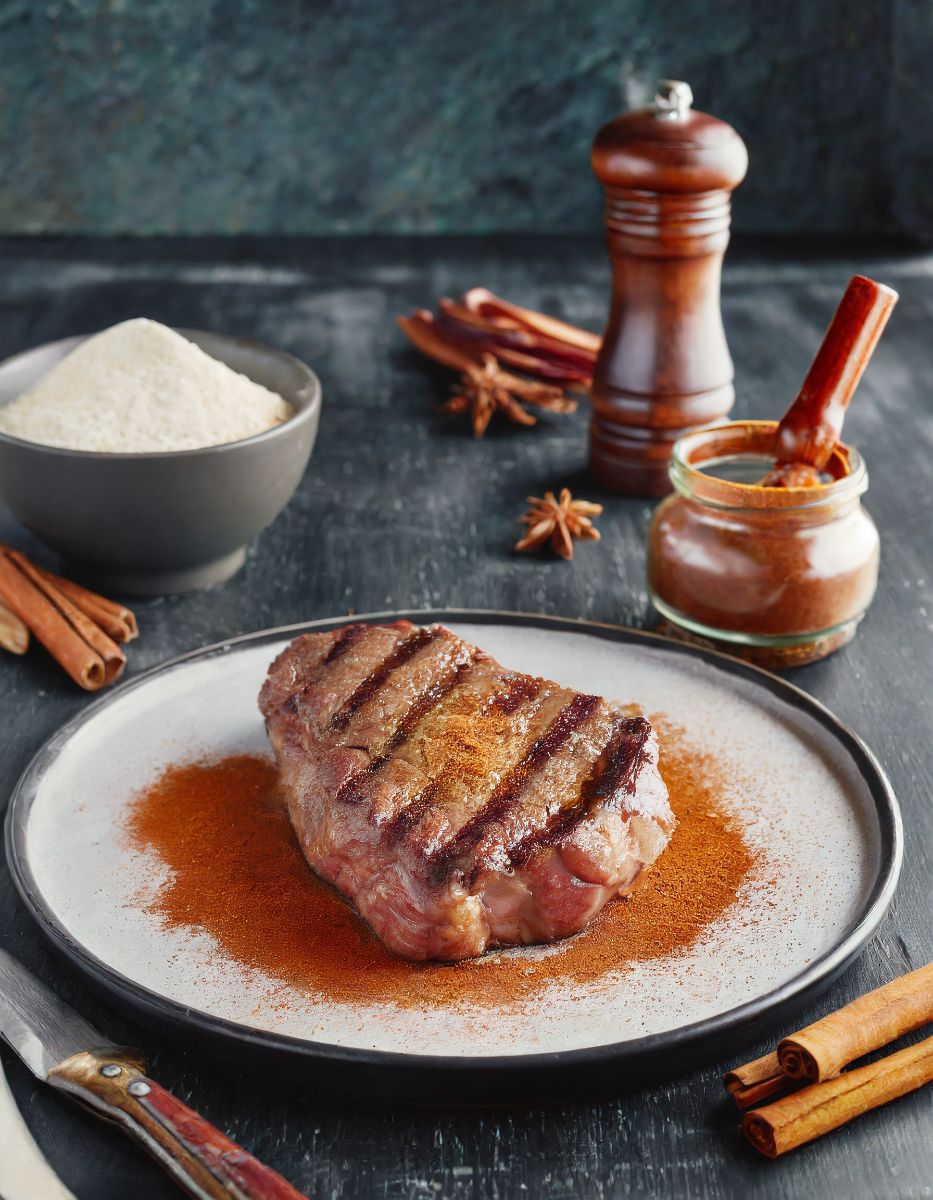Cinnamon is a spice that has been used for thousands of years both for its flavor and medicinal properties. It is derived from the inner bark of trees from the genus Cinnamomum and is used in a variety of dishes, from sweets to savories. Cinnamon's warm, sweet, and woody flavor profile makes it a popular ingredient in baking, but its uses in cooking are equally varied and fascinating.
When it comes to meat dishes, incorporating a dash of cinnamon might not be the first thought for many, but it has been a traditional ingredient in many cultures. Let's delve into how adding cinnamon to your meat can bring an extra dimension of warmth and explore the ways it affects the taste.
Advertisement
Can Cinnamon Truly Add Warmth to Meat Dishes?
Cinnamon has a natural warmth due to its essential oils, such as cinnamaldehyde, which give it its distinctive sweet and spicy flavor. This warmth can complement the savoriness of meat very well:
1. When used in moderation, cinnamon adds a layer of complexity and depth to the flavor profile of meat, enriching the overall taste experience.
2. In the context of spice blends, such as garam masala or Chinese five-spice powder, cinnamon contributes to the overall warmth without overwhelming the other flavors.
3. For slow-cooked dishes, such as stews or braises, cinnamon can infuse the meat over time, providing a subtle and comforting spiciness that pairs beautifully with the tender, savory nature of the dish.
How Does Cinnamon Affect the Overall Flavor of Meat?
Introducing cinnamon to meat does not just add warmth; it profoundly influences the taste in several ways:
1. Cinnamon can balance the richness of fatty cuts of meat by adding a contrasting flavor that cuts through the heaviness, making the dish more palatable.
2. The spice works particularly well with sweeter meat, such as pork or certain types of game, where it enhances the meat's natural flavors.
3. When paired with other complimentary spices, such as cumin, coriander, or clove, cinnamon helps create a harmonious blend that can elevate a simple cut of meat to something extraordinary.
4. In contrast, when it comes to leaner meats, like chicken or turkey, cinnamon should be used sparingly. A light dash can add an interesting note, but too much may overpower the inherent flavors of the meat.
It is important to consider the form in which cinnamon is added to the meat dish. Ground cinnamon integrates quickly and diffuses its flavor throughout the dish, while cinnamon sticks release their essence more slowly, which can be advantageous in dishes that require longer cooking times. Additionally, toasting cinnamon prior to adding it to a dish can help unlock more intense flavors.
Advertisement
In conclusion, cinnamon can indeed be a delightful addition to meat, offering an extra layer of warmth and complexity to a variety of dishes. While it might not be a conventional choice for every meat-based meal, experimenting with this versatile spice can lead to delicious discoveries. Whether it's a sprinkle in a marinade, a pinch in a dry rub, or a stick thrown into a slow-cooked stew, cinnamon's ability to complement and enhance savory flavors should not be underestimated. As with any spice, the key is to find the balance that works for your palate and the specific dish you're preparing. Remember, a little goes a long way when it comes to adding a dash of cinnamon to your meat dishes.

